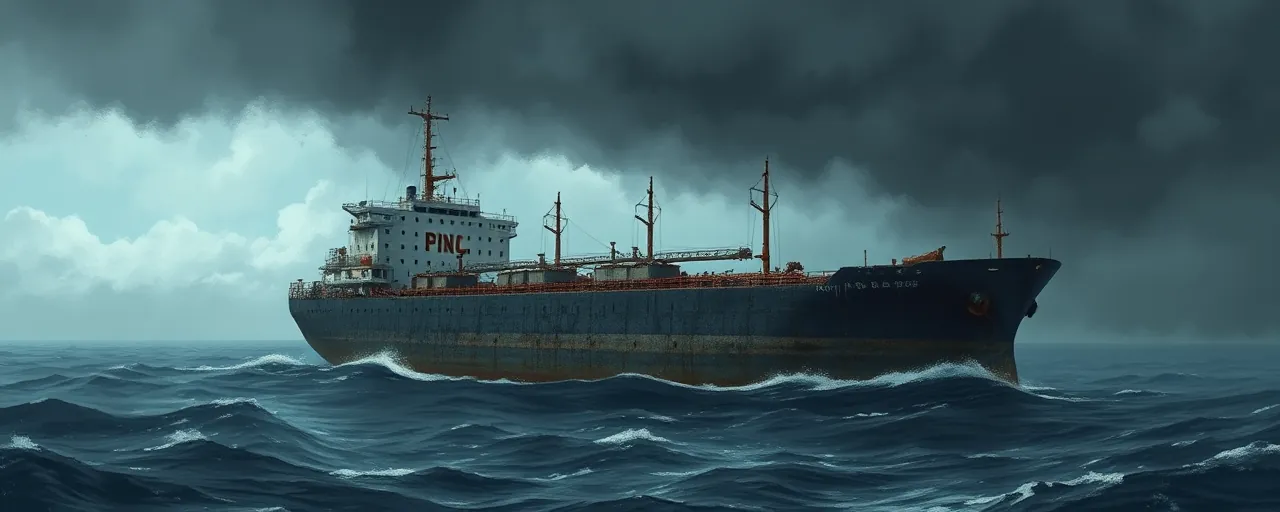A Rogue Fleet Slipping Through the Cracks
Out in the choppy waters of the Persian Gulf, a quiet scandal unfolds. Jugwinder Singh Brar, an Indian shipping magnate based in the UAE, commands a fleet of nearly 30 vessels that slink through the shadows, hauling Iranian oil under the noses of international regulators. These aren’t sleek, modern tankers proudly flying national flags. They’re aging, creaky ships, darting between high-risk ship-to-ship transfers, their tracking systems conveniently dark. This is Iran’s so-called shadow fleet, a lifeline for a regime that thrives on defying sanctions and sowing instability across the Middle East.
The Treasury Department’s latest move to designate Brar and his web of companies, announced on April 10, 2025, lays bare a truth we can’t ignore: this illicit oil trade isn’t just a logistical game, it’s a direct threat to global peace. Iran’s oil profits, funneled through players like Brar, bankroll militias, prop up dictatorships, and fuel conflicts from Yemen to Iraq. For anyone who cares about human rights or a stable world order, this isn’t abstract policy talk, it’s a call to action. The question is, why has it taken so long to clamp down?
Brar’s operation, with its tangle of UAE and Indian entities, exposes a gaping hole in the global fight against sanctions evasion. While the U.S. ramps up pressure, the real-world impact hits hard: every barrel of smuggled oil undermines the collective resolve to hold Iran accountable for its aggression. Families displaced by Houthi rockets in Yemen, communities shattered by Iranian-backed militias in Syria, they’re the ones paying the price. We’ve got to do better.
How the Scheme Works, and Why It’s a Disaster
Here’s how it goes down. Brar’s fleet, including outfits like Prime Tankers and Glory International, uses smaller Handysize tankers to pull off these covert transfers. They load up Iranian oil, often smuggled from fishing boats or shadow fleet giants, in waters off Iraq or the Gulf of Oman. It’s a slow, messy process, sometimes taking days, but it works. Once loaded, the oil gets blended with other countries’ products, shipping papers get forged, and suddenly it’s on the global market, no trace of Tehran in sight.
This isn’t just clever bookkeeping, it’s a disaster for accountability. Research from the past decade shows Iran’s oil exports, even under sanctions, keep flowing, largely to China, which snaps up 85-90% of it at cut-rate prices. That revenue, discounted or not, keeps Iran’s war machine humming. The National Iranian Oil Company, tied to the Revolutionary Guard, has raked in millions through deals with Brar’s ships like GLOBAL BEAUTY and GLOBAL EAGLE in 2024 alone. Meanwhile, environmental risks pile up; these old tankers, dodging oversight, are a spill waiting to happen.
Some argue this trade is just business, a natural response to sanctions squeezing Iran’s economy. They’ll say Brar’s just a guy making a buck, and countries like India and the UAE are caught in the middle. But that excuse falls flat when you see the fallout: oil profits fueling Houthi attacks, or MODAFL front companies moving thousands of tons through Brar’s GLOBAL ELEGANCE in 2023. This isn’t neutral commerce, it’s complicity in chaos. The stakes are too high to shrug it off.
The UAE and India, key players in this mess, have the tools to stop it. The UAE’s beefed-up anti-money laundering rules, pushed by FATF pressure, demand real-time transaction screening. India’s trade hubs could tighten due diligence on firms like Brar’s Global Tankers. Yet enforcement lags, and that gap lets Iran’s oil slip through. History backs this up; both nations have been flagged before for loose oversight, letting shell companies thrive. It’s not about punishing them, it’s about demanding they step up.
Then there’s the maritime angle. Shadow fleets aren’t new, Russia’s been at it too, but Iran’s reliance on STS transfers and AIS blackouts takes it to another level. Studies from the last few years highlight the chaos: falsified docs, flags of convenience, and tankers like NADIYA smuggling for Iran’s military in 2023. The EU’s crackdown on Russia’s fleet shows what’s possible, coordinated action that hits hard. Why not here? The longer we wait, the deeper this rot spreads.
Time to Act, Not Just Sanction
Sanctions alone aren’t cutting it. The Treasury’s designations are a start, blocking Brar’s assets and flagging his fleet, but it’s like mopping the floor during a flood. Iran’s adapted, using barter deals and discounted crude to keep the cash flowing. China’s appetite for cheap oil isn’t slowing, and facilitators like Brar keep finding ways around the net. We need a broader push: global cooperation, not just U.S. muscle, to choke off this trade at every link, from Gulf waters to Indian ports.
This matters beyond policy wonks in Washington. It’s about real people, the ones who suffer when Iran’s oil money funds bombs instead of schools. Advocates for peace and human rights have long warned that half-measures let regimes like Iran’s off the hook. The evidence is there, decades of sanctions evasion proving Tehran’s resilience. It’s time to stop chasing shadows and dismantle the system, starting with enablers like Brar. Anything less is a betrayal of the values we claim to stand for.
